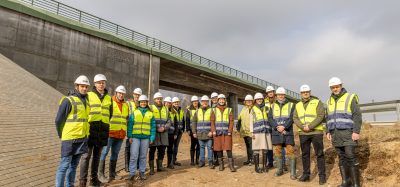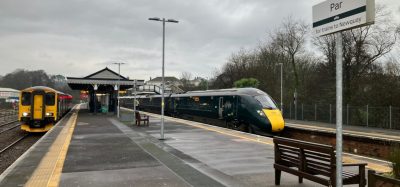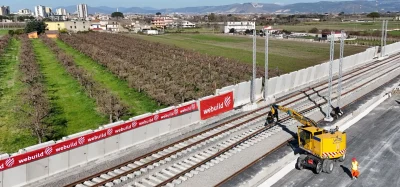A long-term and clear outlook for the Czech Republic railway network
Posted: 4 June 2015 | | No comments yet
As a result of a key decision adopted in the early-1990s to modernise the Czech railway network, the construction plan of the rail transit corridors will be implemented by 2020. It was determined that four rail transit corridors were to be featured on the railway network, establishing the most important domestic and international connections. Most importantly, even now, the demanding parts of the tracks remain to be modernised. Despite these challenges, Dan Tok – Minister of Transport of the Czech Republic – assumes that the majority of these sections will be finalised within the next five years. Here, he takes a look at the future developments for the Czech railway system.
We have to set a clear objective to our further rail transport development policy; a policy that will genuinely be implemented and one that will bring similar benefits as is the case of the rail transit corridors. Approving the ‘Transport Policy of the Czech Republic for 2014-2020 with the Outlook until 2050’, the Czech Republic has signed up for a plan to duly develop the so-called Fast Connections concept. The objective is to provide more capacity to freight transportation, to transfer higher volumes of freight transport from road to rail and to speed up transport in key relations under reasonable financial conditions.
The fast connection concept is very capital intensive. The total costs include not only the construction costs but also the future railway maintenance costs, including the costs of transport operators, passengers and the state if the traffic operation is subsidised. Hence the decision on what the fast connection system should look like must be based on a responsible approach of all stakeholders. We have to define the real needs in relation to the future public funds limits and future users of the fast connection system. Our objectives must be realistic and attainable by 2030 and also by 2050 in compliance with the EU Regulation on the TEN-T network.
The Railway Infrastructure Administration in cooperation with the Ministry of Transport and external experts will carry out a so-called ‘opportunity study’ which will identify the main shortcomings of the current railway transport system in the Czech Republic and outline an optimal approach to sequential development of fast connections. Thus the transport conditions for both inland and outbound railway traffic will be gradually improved. There is a lot of work ahead of us. Moreover, apart from the problem of traffic throughput between the cities, the key problem of the fast connections is the interconnection of the new railway lines to the railway junctions (cities). The study will examine this issue as well.
The Czech Republic Territorial Development Policy as well as the Spatial Development Principles for Individual Regions define corridors as ‘territorial reserves’ that are protected in the long-term so that they can be used for the purposes of future high-speed line corridors. Apart from securing the corridors, it has proven to be useful to also check the high-speed track throughput elsewhere to see whether the high-speed lines could provide service to other destinations. For this purpose, and also for the purposes to better delineate the already defined high-speed lines, a technical and territorial study is being discussed with the public.
Additionally, our cooperation with the neighbouring states also aims at improving railway connections at different levels. We have agreed on the construction of an improved railway connection between Prague and Munich together with Joachim Hermann, the Bavarian Minister of the Interior for Construction and Transport. I have discussed the issue of the Prague–Brno–Vienna railway line with my Austrian counterpart, Alois Stöger.
There are multiple possible directions for further development as well as many different infrastructure construction strategies. However, the Ministry of Transport cannot veer off course; neither can we turn into a club of ruminating philosophers. We cannot label every necessary and planned transport construction project as our priority since thus we deprive this word of its original meaning. We have to decide already quite soon whether we give a green light to the fast connections. We cannot change the comprehensive transport strategy every month or every year or two. We need a clear and unambiguous outlook. A long-term outlook that is understandable for the entire European Union. I believe that the Czech Republic will make the right decision.







